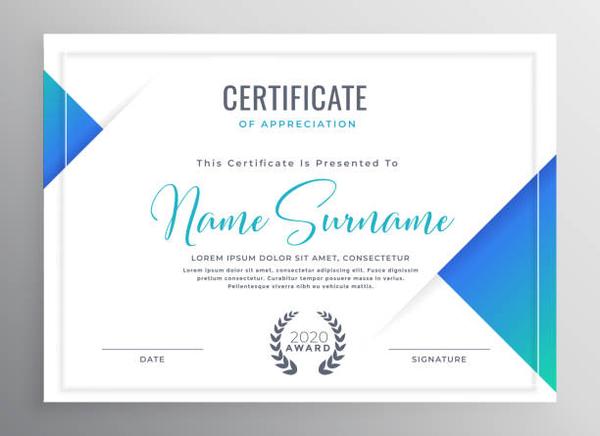Fake degrees are usually bought by people to help them get ahead. These fake degrees can be used by employers, co-workers or friends to impress them. However, this is not legal and may be detrimental to the general public.
It’s possible to understand by using the Veblenian theory of economics, the reasons why people buy fake degrees. Degrees are used for ceremonial and instrumental functions and grant excludable, but non-rival property rights like the ability to communicate, abilities the status of an individual and their abilities.
Motives behind buying fake degrees
Fake diplomas are an increasingly common phenomenon in the present day. Some people choose to go the route of a criminal, while the majority of students opt to pursue their education through legitimate ways. Some individuals purchase fake degrees to fool others into believing their qualifications for financial gain or to advance their careers. Others simply want to avoid the cost and time associated with earning a real diploma.
In certain situations fake degrees can be utilized to overcome challenges like personal or familial issues that may otherwise prevent individuals from achieving their education goals. If a person has well-educated parents, they could put pressure on their child to get a college degree. In these cases it is possible that the motive to purchase fake degrees could be a way to please one’s parents and maintain a good standing in society.
Some people purchase fake degrees to boost their confidence or gain an edge over their competition. If, for instance, someone is in a profession where it is difficult to get an entry-level job without a degree A fake degree could help them gain the confidence to apply for positions. Additionally, a lot of people make use of fake degrees as a way of visual stimulation that can help them to work hard to achieve success. This can be especially crucial for students who have struggled academically.
Fake degree buyers’ profiles
Many of those who buy fake degrees do it for a variety of reasons. Some want to increase their LinkedIn profile or resume or profile, while others could be trying to defraud employers. Some people are simply trying to build their careers or find an https://lambanggiagiare.net/ opportunity to get a new job. The practice is growing, regardless of the motive.
There is a huge market for fake qualifications It’s not difficult to locate fake diplomas for graduation certificates from high schools, bachelor’s degrees, master’s, and even PhD degrees from schools that don’t exist. Fake universities often lack the physical location as well as faculty pictures and accreditation institutions.
It’s difficult to determine if these companies are lying. For instance, an Axact affiliated university claimed to provide the service, however the letter confirming its transcripts contained a PO box in Arizona.
Gollin suggests that people be aware of the amount of fake degrees. He once tracked down a degree mill which sold fake certificates from Saint Regis University. Gollin suggests that a government-run website could compile a list legitimate institutions and notify users whenever they attempt to access websites that are fake universities. A similar approach could work for counterfeit currency, he says.
Fake degrees and their effect on society
Fake degrees are a multibillion dollar business that can cause harm. They could affect a business’s image, operations, and even their legal standing. Fake degrees are a major issue in the academic world, yet they have not received much recognition despite their significance. This paper is designed to fill the gap by employing economic tools such as club theory and the status functions of diplomas to examine the consequences of fake degrees. We also analyze the implications of rewriting degrees to make them appear legitimate ones.
This paper examines the rise of fake degrees within the global marketplace, and provides an argumentative framework to study the impact they have on society. The paper starts by defining the key terms used in this context like “fake degree” and “diploma-mills”. Then, it provides a brief history of fake degrees, and discusses the causes behind their current growth. It also outlines the benefits and costs of this trend from an economic viewpoint.
An increasing number of individuals are buying fake degrees to boost their job prospects. A few of them may be illegal immigrants or undereducated earners, whereas others are highly-educated professionals. The media exposes politicians and corporate executives for falsely claiming to have earned their degrees. The revelations cause the loss of confidence in the institutions that award these certificates.
Buyers with fake degrees: How to identify them
Although many are aware that fake degrees can be a problem, the truth is that fake degrees can be hard to detect. The reason is because these degrees are designed to be identical to authenticated real ones. Therefore, it’s crucial to recognize fakes and avoid them at all costs.
There are many reasons for someone to purchase fake degrees, ranging from being unable to afford university tuition to wanting a social standing. In certain cases it could be a way to get the job they want. It is crucial to be aware that purchasing a fake diploma can have serious implications. Fake qualifications can be dangerous in the areas of health and engineering.
Another reason to be concerned is that fake degrees can be very easy to obtain. According to George Gollin, a member of the Council for Higher Education Accreditation There are a lot of diploma mills operating all over the world, which sell fake degrees. Furthermore, Gollin claims that some universities are unwitting partners with these companies.
Fake degrees are a huge issue and they can have serious implications for the hiring industry. A study has revealed that one third of employers fail to verify the qualifications of candidates This is an alarming number.




